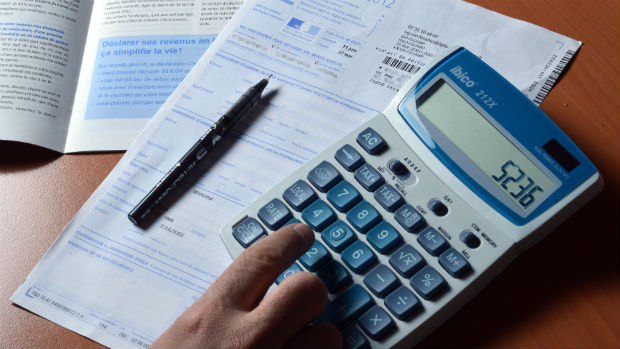Tax evasion or tax avoidance: what's the difference?
With allegations of tax evasion flying, here's how to be sure of staying on the right side of the law

A free daily email with the biggest news stories of the day – and the best features from TheWeek.com
You are now subscribed
Your newsletter sign-up was successful
Do you pay your tax? If the headlines are to be believed this week plenty of us aren't paying all we probably should. Whether you are a Tory bigwig accused of tax avoidance like Lord Fink, or a blue-collar worker not declaring income as accused by Ed Balls, it seems there are many ways you can reduce your tax bill some legal, some not.
Experts and commentators keep talking about tax avoidance and tax evasion, but what do those terms mean and what are you allowed to do to reduce your tax bill?
Tax avoidance is entirely legal and is where you take steps to minimise your tax bill. Think of it like bending the rules rather than breaking them. On a small scale it can mean saving into an ISA so you don't have to pay income tax or capital gains on that money. On a grander scale it can mean paying an accountant or tax expert to exploit loopholes in the law to minimise your tax bill.
The Week
Escape your echo chamber. Get the facts behind the news, plus analysis from multiple perspectives.

Sign up for The Week's Free Newsletters
From our morning news briefing to a weekly Good News Newsletter, get the best of The Week delivered directly to your inbox.
From our morning news briefing to a weekly Good News Newsletter, get the best of The Week delivered directly to your inbox.
While saving into an ISA or pension may be encouraged by HMRC, not all methods of tax avoidance are condoned. If HMRC disagrees with how you've reduced your tax bill it can demand you pay the extra tax back plus the interest and penalties.
This is what happened to pop star Gary Barlow last year. He and many other celebrities invested in Icebreaker, a scheme that was supposed to buy up intellectual property rights to generate income. In fact very few rights were bought and most of the money just circulated in a closed circle within the scheme, generating paper losses that investors could use to offset against their profits elsewhere for tax purposes. HMRC disapproved of Icebreaker and after a legal battle hefty tax bills landed on the doormats of all the celebrities involved – Gary Barlow alone is believed to have had to pay back millions.
At present senior Tory grandee Lord Fink is being accused of tax avoidance by moving shares into family trusts. In the past Ed Miliband successfully avoided tax by using a loophole known as a 'deed of variation' to change his father's will posthumously to minimise the inheritance tax bill.
There are many shades of tax avoidance, but it is not illegal as long as you are open about it. But, if HMRC thinks you've gone to far you'll have to pay the tax back. The difference with tax evasion is that it is illegal. It is where you deliberately break the rules and deceive the taxman about what your tax bill should be.
A free daily email with the biggest news stories of the day – and the best features from TheWeek.com
HSBC is currently embroiled in a tax evasion scandal as it has been revealed that back in 2007 it was helping clients hide money in offshore accounts in order to evade paying tax.
Last year an eBay trader was convicted of tax evasion and sent to prison for two years for failing to pay tax on income he made trading on the website.
Other examples of tax evasion are failing to file a tax return, not declaring your full income or hiding taxable assets. Get caught evading tax and you could be sent to prison for up to 10 years.